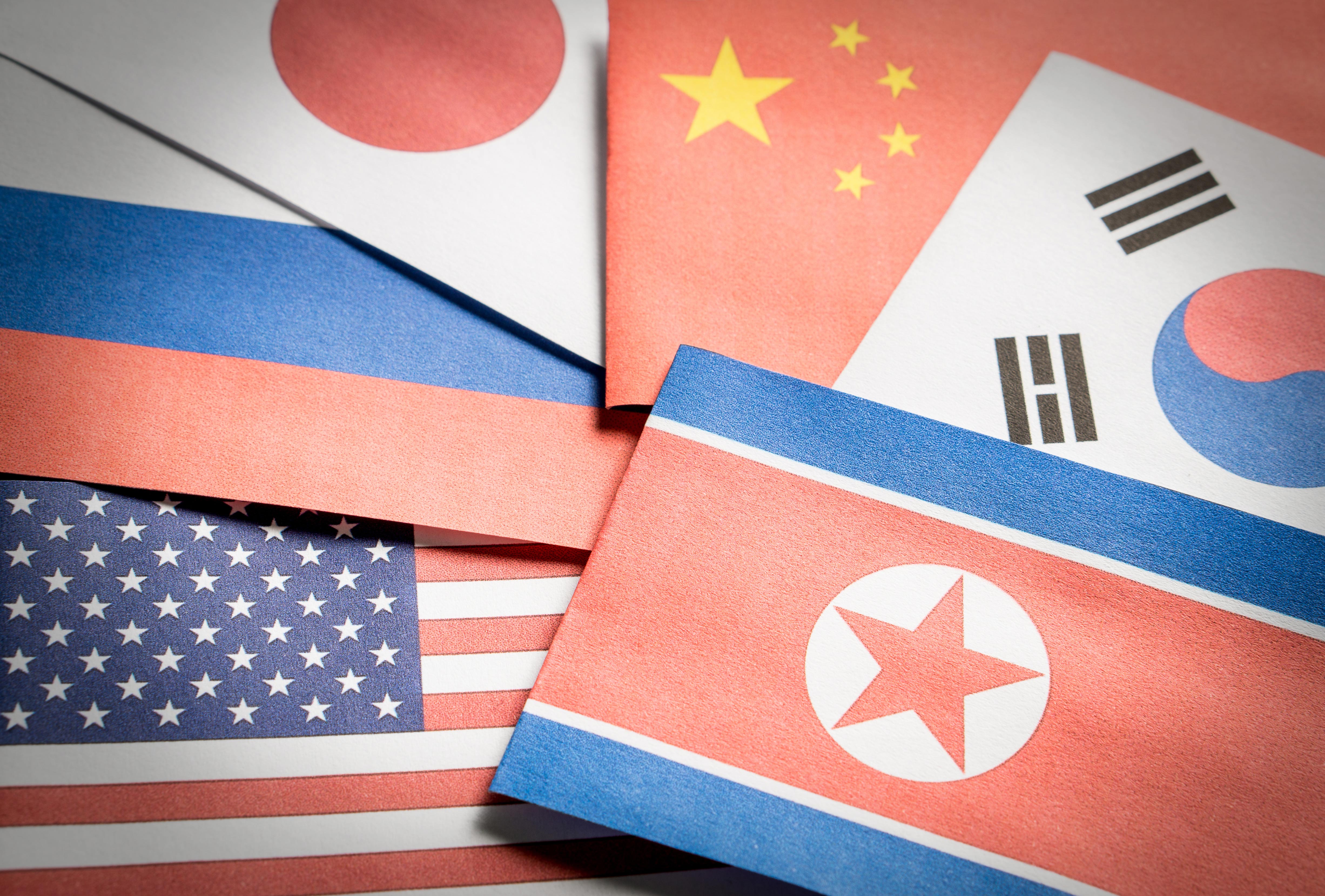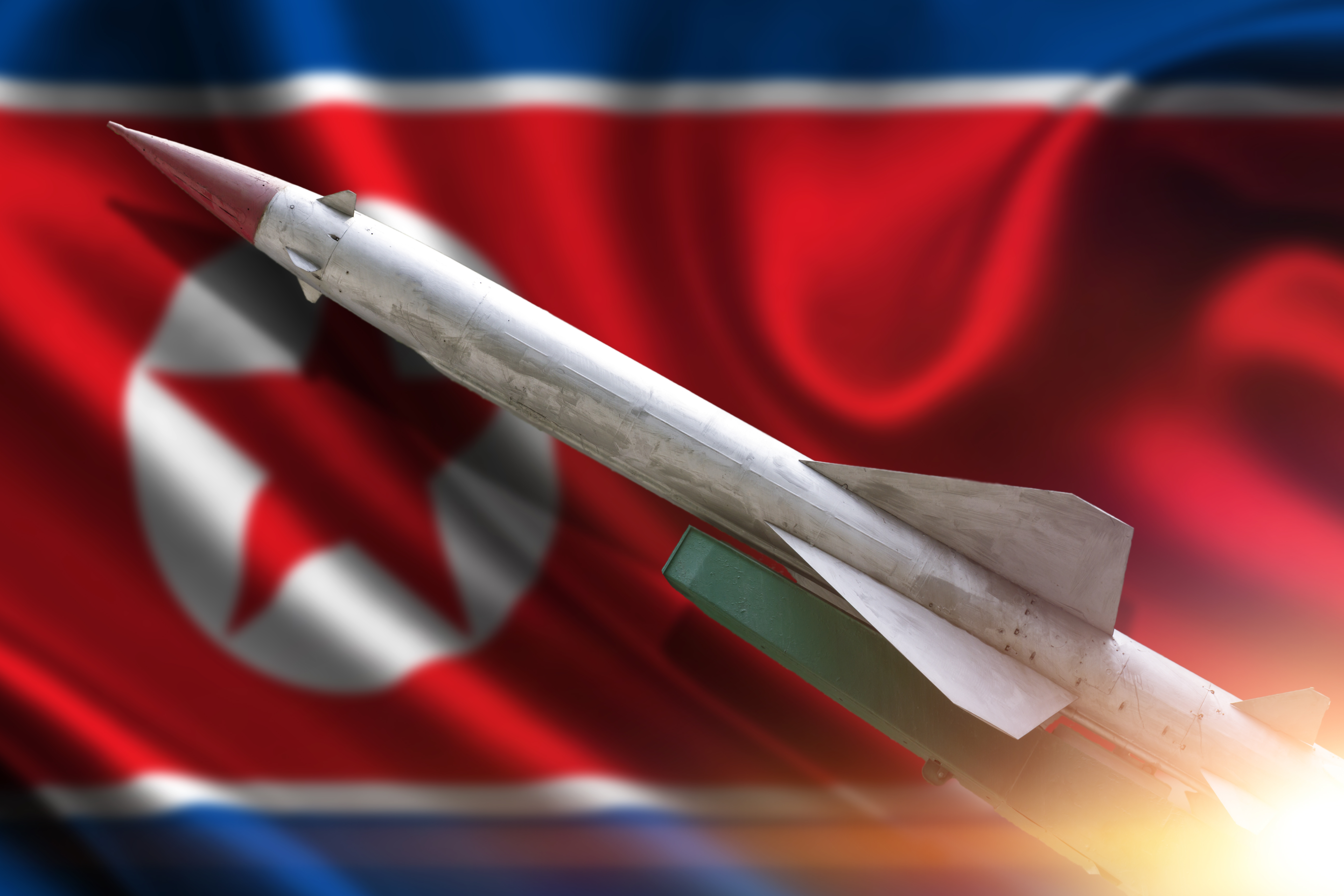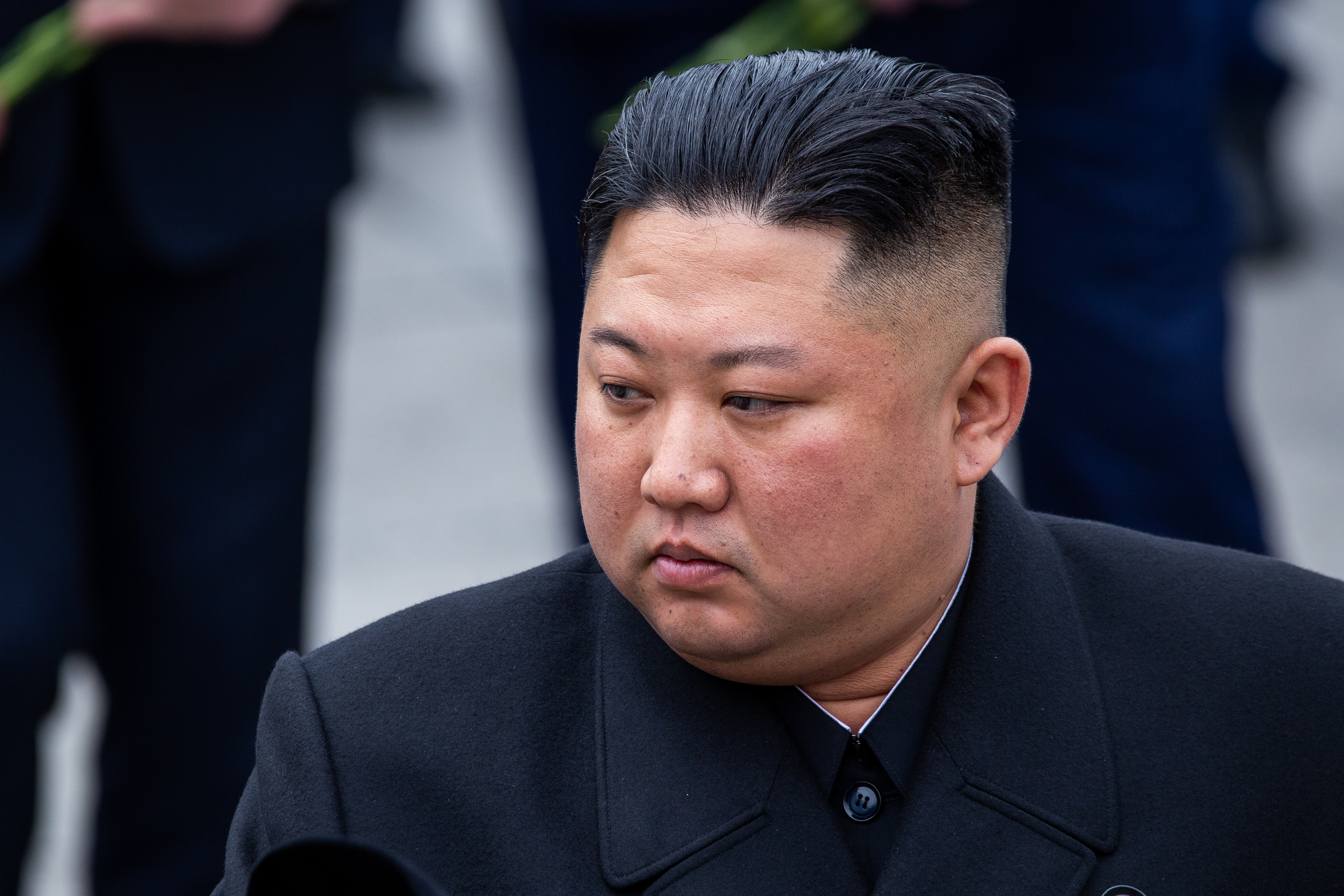
NK Update for January 2022
Special Report | February 28, 2022
Hanna Lee
Ph.D. Candidate at Seoul National University
In this month’s NK Update, Hanna Lee, Ph.D. Candidate at Seoul National University, looks into how South Korea’s Ministry of Unification and the Ministry of Foreign Affairs, China's Ministry of Foreign Affairs, and South Korea's think tanks view North Korea's missile test launches in January. The author further touches upon the South Korean and Chinese government’s responses to the Joint Statement of the Leaders of the Five Nuclear-Weapon States on Preventing Nuclear War and Avoiding Arms Races.
North Korea’s Missile Test Launches in January
North Korea has conducted a total of seven missile launches on January 5th, 11th, 17th, 25th, 27th, and 30th. This report examines statements released by South Korea’s Ministry of Unification and the Ministry of Foreign Affairs, China's Ministry of Foreign Affairs, and South Korea's think tanks on North Korea's actions.
1. South Korea’s Ministry of Unification: Press Briefing
The Ministry of Unification expressed strong regret over North Korea’s missile launches and urged North Korea to meet the expectations of the international community and respond to the community’s call for cooperation and dialogue during a Press Briefing on January 14th. On the Press Briefings held on January 17th and 28th, the ministry stated that the standing committee of the National Security Council (NSC) convened an emergency meeting, during which it discussed the reasons behind and the impact of North Korea's missile launches in depth. The Unification Ministry claimed that it vows to make consistent efforts to establish peace on the Korean Peninsula and improve inter-Korean relations.
2. Ministry of Foreign Affairs: Top Nuke Envoys of South Korea, U.S., China, Japan, and Russia Hold Phone Talks
According to the Ministry of Foreign Affairs, Noh Kyu-duk, Special Representative for Korean Peninsula Peace and Security Affairs, held a total of 11 phone talks with the top nuclear envoys of the U.S., China, Japan, and Russia. This included five talks with the U.S., three with Japan, one with Russia, one with China, and a trilateral talk between South Korea, U.S., and Japan. Special Representative Noh stated that he agreed to share South Korea’s assessment of North Korea's missile test results with each country through discussions over the phone, discuss future countermeasures, and continue to work in close cooperation to resume dialogue with North Korea. In particular, Noh said that he discussed means of cooperation based on the strong ROK-U.S. alliance with his U.S. counterpart. To his Chinese counterpart, he emphasized the importance of dialogue with North Korea. He further requested China and Russia to take on a constructive role.
3. The Chinese Foreign Ministry: Regular Press Conference
During its Regular Press Conference on January 5th, the Chinese Ministry of Foreign Affairs noted that the ministry is aware of the reports on North Korea’s missile launches and stated that “the peace and stability of the Korean Peninsula doesn’t come easily and should be all the more cherished.” It additionally claimed that relevant parties should “adhere to the right direction of dialogue and consultation, and work together to promote the political settlement of the Korean Peninsula issue.” On the Regular Press Conference held on the 11th, the ministry stated that relevant sides “should avoid jumping to conclusions or overacting” and “resolve respective concerns through dialogue and consultation, and advance the political settlement process of the Korean Peninsula issue along the dual-track approach and the phased and synchronized principle.” The ministry further reiterated its position that related parties should resolve the issue of North Korea's missiles through dialogue and negotiation on the Regular Press Conferences held on the 12th, 14th, and 27th.
To a question on U.S. imposed sanctions during the Regular Press Conference held on the 13th, the ministry responded that “willful sanctions do not help resolve the Korean Peninsula issue, but only worsen the confrontational mood.” At the conference on the 19th, the ministry noted that the United Nations (UN) “Security Council has no plan to discuss the so-called draft resolution concerning sanctions on the DPRK” and that it should “view the current situation prudently with a long-term perspective and the big picture in mind.” On the 20th, the Foreign Ministry Spokesperson stated that “sanctions and pressure would only escalate the tension further rather than settle the Peninsula issue” and “China hopes the US will demonstrate good faith, take real actions and respond to the legitimate security concerns of the DPRK.”
4. Statements from South Korean Think-tanks
Professor Bong-geun Jun at the Institute for Foreign Affairs and National Security wrote that the North Korean nuclear issue poses urgent threats; South Korea cannot afford to wait for its northern counterpart to participate in negotiations. In this regard, he provided four proposals to prevent the recurrence of the North Korean nuclear crisis and restart the denuclearization process. Professor Jun suggested that related parties should reach an agreement on the necessity of North Korea’s nuclear freeze and a “tentative agreement” in order to resume U.S.-DPRK dialogue and settle on a “tentative agreement” similar to that from the Joint Comprehensive Plan of Action (JCPOA). In order to reach an agreement, Jun posited that related parties should prepare a “mini deal package” in order to push for initial denuclearization in exchange for corresponding measures. Finally, he suggested that Biden should write a letter to Kim Jong Un and actively provide humanitarian support to North Korea.
Seong-Chang Jeong, Senior Research Fellow at the Sejong Institute, wrote that North Korea aimed to flaunt the results of North Korea’s advancements and create a festive atmosphere for North Koreans ahead of the 80th anniversary of Kim Jong Il’s birth and 110th anniversary of Kim Il Sung’s birth through the missile launches. On the 8th Central Party Committee's 6th Politburo Meeting, the political bureau “reassigned the policy tasks for the national defense of immediately bolstering more powerful physical means which can efficiently control the hostile moves of the U.S. against the DPRK.” He analyzed that North Korea’s firm stance hints at the possibility of North Korea responding with nuclear tests and intercontinental ballistic missile (ICBM) launches if the UN Security Council were to adopt sanctions. However, Security Council’s failure to adopt sanctions against North Korea leaves the hermit kingdom with no justifications for its offensive.
Du Hyeogn Cha, Principal Fellow at the Asan Institute, offered three interpretations, noting that since 2019, North Korea’s projectiles were mostly aimed at South Korea. The first interpretation is based on the assumption that North Korea launched projectiles in an attempt to reveal its plan on using preemptive nuclear weapons on the Korean Peninsula. The second interpretation holds that North Korea hopes the U.S. recognizes it as a nuclear state. Lastly, Cha stated that the launches are part of North Korea’s plan to push the U.S., unwilling to negotiate due to a limited pool of cards, to resume dialogue with the North. He analyzed that North Korea focused on short-range projectiles with lower risks, instead of nuclear tests or intercontinental ballistic missiles, considering the possibility that the U.S., ahead of its mid-term elections, would respond with a hard-line military response to North Korea's actions instead of a mere warning.
Joint Statement of the Leaders of the Five Nuclear-Weapon States on Preventing Nuclear War and Avoiding Arms Races
1. South Korea’s Ministry of Unification: Press Briefing
The South Korean foreign ministry expressed its support for the Joint Statement of the Leaders of the Five Nuclear-Weapon States on Preventing Nuclear War and Avoiding Arms Races during its Press Briefing on January 4th. The ministry expected that “the Joint Statement will contribute to strengthening the global nuclear non-proliferation regime based on the Nuclear Non-Proliferation Treaty (NPT) as well as to enhancing international peace and stability” and that it “welcomed that the Five Nuclear-Weapon States, for the first time, jointly affirmed that ‘a nuclear war cannot be won and must never be fought.’” Furthermore, it stated that “the Korean government also urges the Five Nuclear-Weapon States to take this opportunity to engage constructively in bilateral and multilateral dialogues aimed at achieving substantive progress in nuclear disarmament and preventing arms races.”
2. The Chinese Foreign Ministry’s Position
China’s Ministry of Foreign Affairs also published its position on the joint statement on its website on January 4th. The ministry stated that China’s primary role lies in preventing war and minimizing strategic risks among nuclear-weapon states. It further stated that nuclear weapons should only be used in adherence to the principle of self-defense, to deter attacks, and to prevent war. Additionally, it notes that nuclear proliferation should be put to a halt. Furthermore, the ministry stated that China abides by the Treaty on the Non-Proliferation of Nuclear Weapons (NPT) and that it hopes for the five states to continue to “enhance strategic mutual trust and strengthen communication and cooperation.” Foreign Ministry Spokesperson Wang Wenbin claimed that “China is the only one among the five Nuclear-Weapon States that has pledged no first use of nuclear weapons” and that China hopes “the five States can proceed from the leaders’ joint statement on preventing nuclear war and give up nuclear deterrence policies based on the first use of nuclear weapons” on the January 6th Regular Press Conference.
■ Hanna Lee is a Ph.D. candidate in the Department of Political Science and International Relations at Seoul National University. She has received her MA in the Department of Political Science and International Relations at Seoul National University and her BA from the School of International Studies at Peking University. She has previously worked as a research assistant at the Asia Center and the Center for International Studies at Seoul National University. Her research interests include Chinese Politics & Foreign Policy, US-China relations, China’s Crisis Behavior and the South China Sea Disputes.
■ Typeset by Seung Yeon Lee, Research Associate
For inquiries: 02 2277 1683 (ext. 205) | slee@eai.or.kr
North Korea’s Missile Tests

After the Missile Tests: North Korea’s Intentions and Game Plan for 2022 and Beyond
Hyeong Jung Park | February 24, 2022

The Geopolitics of Human Trafficking and Gendered North Korean Migration
Eunyoung Christina Choi | February 23, 2022

Reading Chairman Kim Jong Un’s Mind
Young-sun Ha | January 26, 2022
LIST